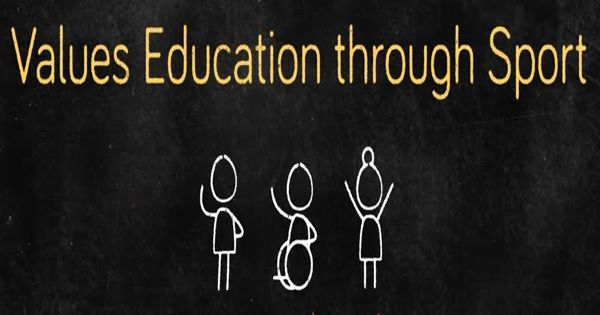The great Duke of Wellington once saw the boys of Eton school playing on the fields and was moved to say, “There are great battles were won.” Hem meant that young lads acquire on the playground not only physical stamina, but discipline, the habit of obedience, the will to win, – and these virtues make them good soldiers when their country calls them to the field of battle. Thus the duke taught us not that sports give us pleasure, but that they educate us in virtues which help to win the battle of life and the struggle for existence.
We do not belittle the pleasures of sports. It is very well to enjoy the delight of running about in the open field and to ‘feel life in every limb’. But that only makes the lessons that we learn, of discipline, obedience and tenacity, all the more pleasing. To develop character, not by dry-as-dust moral lessons, but in the course of our enjoyment of games, is a privilege which we must value.
The most important lesson that sports of all kinds teach us is a sense of discipline. A good sportsman must always learn to obey the rules of the games and the orders of the captain. Lawlessness in a vice that has spoilt many a promising career. The sportsman is never lawless. He knows how to obey. He knows the value of the proverb – “He who knows how to obey will know how to command.”
Discipline goes hand in hand with duty. On the playground, each individual has his allotted duty to perform. He has to carry out his share. It is his duty to help in winning games by obeying his captain. Discipline, duty, obedience – this is the great moral triangle that encloses a strong character. The weak man shirks his duty; he tries to be defiant, mistaking disobedience for strength. But the really strong man, who knows he is strong, is never ashamed to obey.
Another great virtue which sports help us acquire is the will to win. Life is a struggle, a constant fight against difficult, against adversities, against disappointments. The weak-willed man resigns himself to what he calls his fate because he has not the will to victory. He belongs to the ranks of the defeated. He is not a sportsman. For a sportsman take defeats and disappointments as true parts of the game. They nerve him to greater efforts, to a stronger determination.
Today he is defeated, but he knows that tomorrow he may win; nay, he is sure to win provided he holds his chin up. Perhaps this is the most valuable lesson that we can learn from the British. They are a sportsman in this sense. They know how to fight ruthlessly, but they know also how to take defeat in a sporting spirit and to prepare themselves for a greater fight.
To true sportsman knows also the value of team spirit or unity in action. Look at the rowers in a boat; how harmonious are their strokes. If one of them misses his rhythm the harmony is destroyed. How often have we not seen on the football ground, a splendid opportunity lost by the selfish desire of one man to shine at the expense of the others? It is the same in the cricket field; the same everywhere. Unity of action inspired by unity of purpose that is the great lesson which we can learn from sports.
Sports should teach us another lesson which is often ignored, – to obey the umpire whether he is right or wrong. It the hard battle of life, we do not always get justice. Often the verdict goes against us through no fault of ours. A true sportsman takes the ‘slings and arrows of outrageous fortune’ as in the course of the game. He is not disheartened but prepares for a further effort.
So sports of all kinds are not only good for the body, but they are good for the mind and the character. The lessons learned on the playground will make better soldiers of us in the battle-field of life, in our ware with adversity, opposition, misfortune, and destiny itself.
















